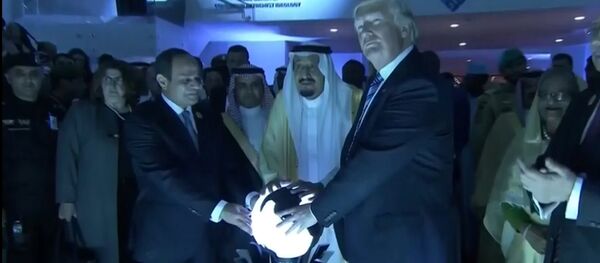"Qatar might reduce its public support to Hamas and the Muslim Brotherhood, but it will not relinquish its support to these organizations completely," Georgetown University in Qatar Center for International and Regional Studies analyst Islam Hassan said.
Saudi Arabia, joined by Egypt and the United Arab Emirates (UAE), cut off diplomatic relations with Qatar, citing the country’s alleged support for terrorist groups. US President Donald Trump publicly supported the move.
"Qatar is very confident of itself and believes that it has the capabilities and capacity to adopt an independent foreign policy. It also does not perceive the Muslim Brotherhood and Hamas as terrorist organizations, but rather as key political players in the region," he stated.
Hassan said Qatar’s ruler Emir Tamim bin Hamad al-Thani remained committed to dealing with all governments and forces in the region.
"Following its hedging foreign policy strategy, Qatar will continue to recognize all different players in the region, including Hamas and the Muslim Brotherhood," he said.
Saudi and US efforts to pressure Qatar would fail to reduce terrorism in across the Middle East, Hassan predicted.
"The severing of diplomatic ties with Qatar will not have an impact on regional efforts to combat terrorism. Saudi Arabia and UAE remain the two most involved countries in the region in military combats against who they perceive as terrorist groups," he said.
"Thus, the severing of ties will not have an impact on the Saudi and Emirati military campaigns against the perceived terrorist groups," he stated.
Qatar’s government did not want to be involved in Saudi-led military operations against rebel forces in Yemen, Hassan observed.
"Qatar believes that anti-terrorism military combats have marginal impact; and thus, it welcomes the withdrawal from the Yemen coalition," he noted.
Hassan also suggested that the conflict between Qatar and the rest of the Gulf Cooperation Council (GCC) states would eventually be quietly resolved.
"Although the scale of the current diplomatic crisis is unprecedented, this rift will only take little longer than before to pass. The GCC countries recognize the importance of their integration for their survival; thus, we will not witness an irreversible shakeup of regional relations," he said.
University of Pittsburgh Professor of International Relations Michael Brenner described the US position in the crisis as irrational.
"The attitude toward Saudi Arabia on all sorts of matters makes no sense from the vantage point of American interests," Brenner stated.
What is being done in our name will only bring more conflict, more instability, encourage violent Salafist groups and alarm everyone — Saudi Arabia too, Brenner concluded.





